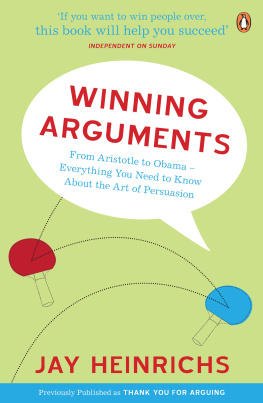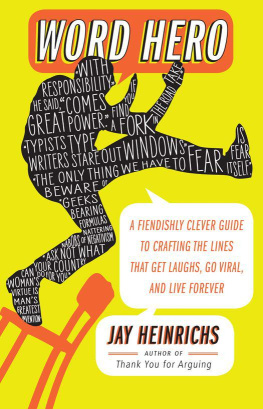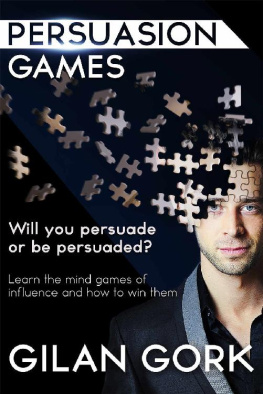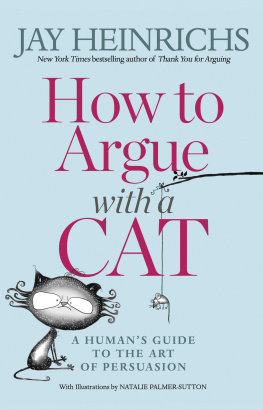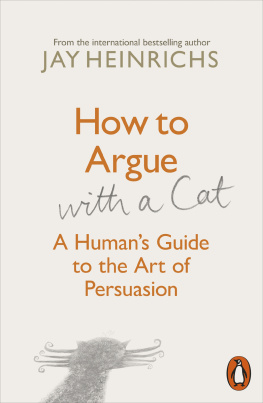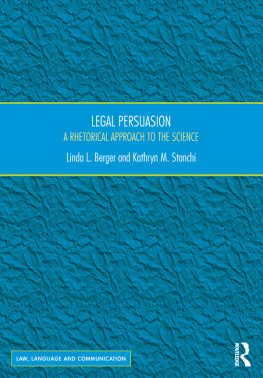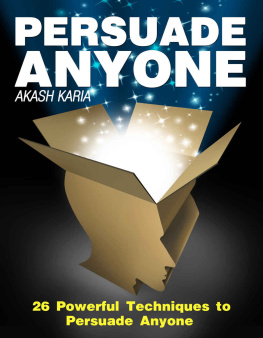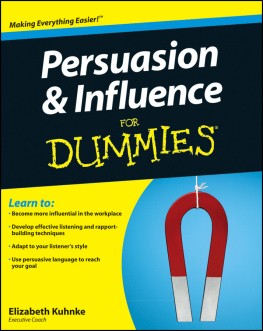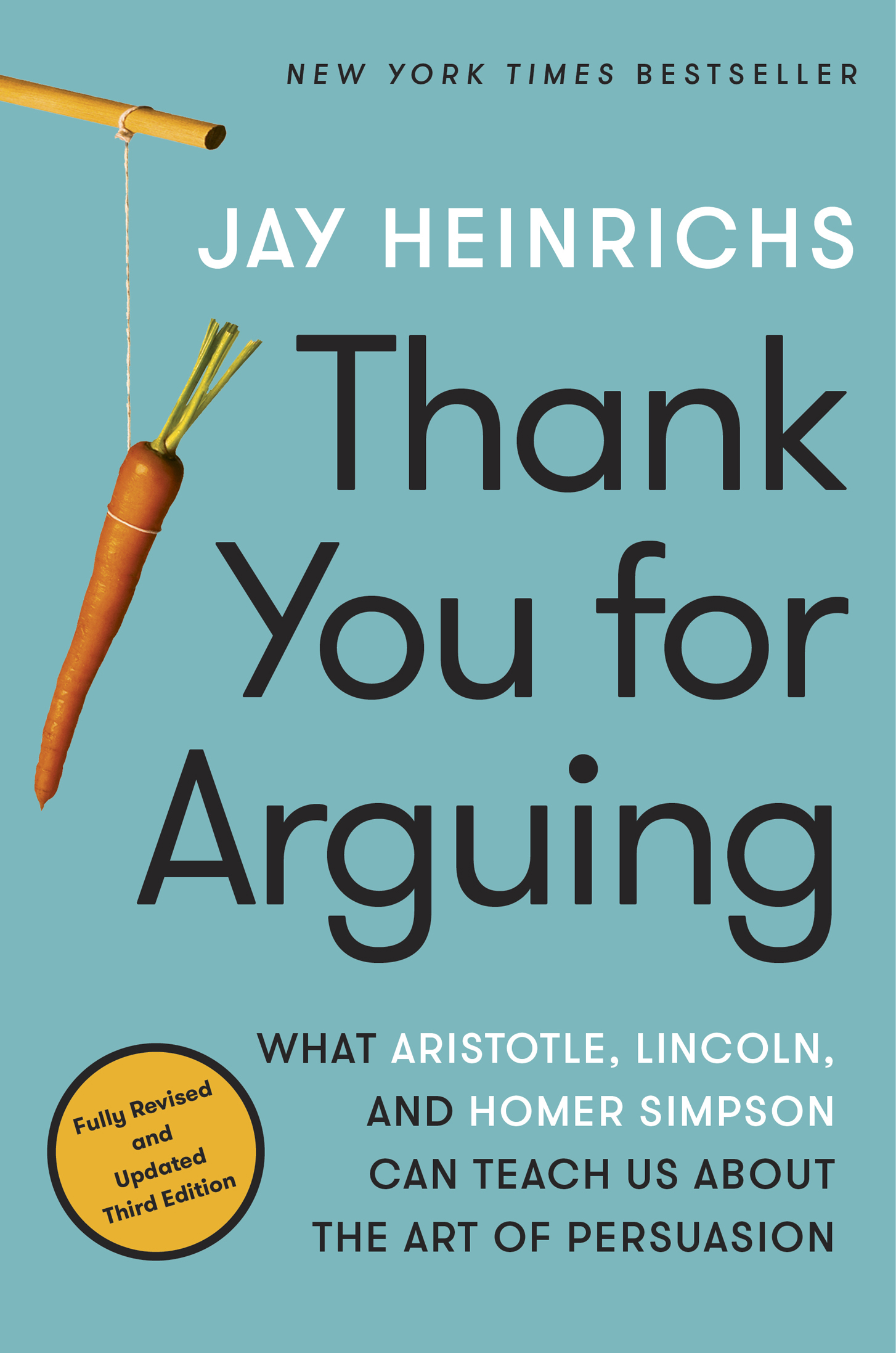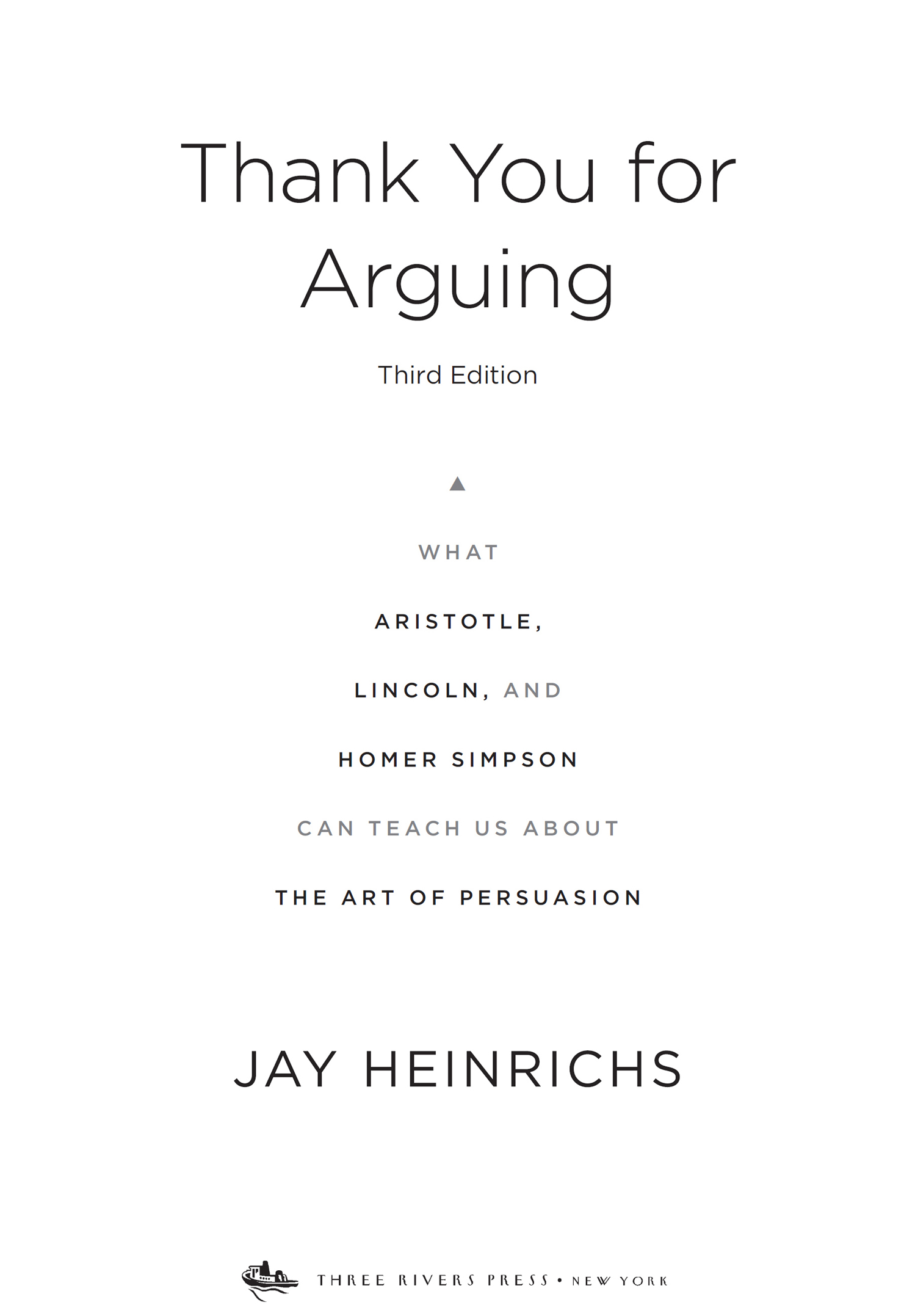Contents
More Praise for Thank You for Arguing
Heinrichs is a clever, passionate and erudite advocate for rhetoric, the 3,000-year-old art of persuasion, and his user-friendly primer brims with anecdotes, historical and popular-culture references, sidebars, tips and definitions.
Publishers Weekly
Cross Cicero with David Letterman and you get Jay Heinrichs, whose new book is simultaneously an analysis of how to argue effectively and a hilarious commentary on the reasons we have lost the art so completely.
Joseph Ellis, author of American Sphinx and Founding Brothers
A lot of people think of rhetoric as a dirty word, but a long time agothink ancient Greeceit was perhaps the noblest of arts. Jay Heinrichss book is a timely, valuable, and entertaining contribution to its much-needed rehabilitation.
Ben Yagoda, author of About Town: The New Yorker and the World It Made and The Sound on the Page: Great Writers Talk About Style and Voice in Writing
Knowing how to use the proper words is an art; knowing how to intersperse them with savvy pauses is a mystery. Words are treacherous: they either explain or conceal. And silence is all the more dangerous: speak too much and youve become redundant; speak too little and youre ignored. But speak in just the right way and then be quiet and youll be revered and esteemed. Jay Heinrichss superb modern manual on rhetoric shows the extent to which we are what we sayand how. Ah, the mysteries of the tongue!
Ilan Stavans, author of Dictionary Days: A Defining Passion
A rhetorical cocktail party where the guest list includes Cicero, Britney Spears, St. Augustine, and Queen Victoria. From MTV to Aristotle, Heinrichs entertains, enlightens, and even teaches us a little Greek, persuading us that the big battles and daily combats of work, love, and life can be won. If argument is the cradle of thought, Thank You for Arguing can make us all better thinkers. So listen up!
Sarah McGinty, author of Power Talk: Using Language to Build Authority and Influence
Reading Thank You for Arguing is like having a lively talk with the author about the very backbone of real talk, the willingness of people to change each othersand their ownideas through constructive argument. Writing with vividness and rigor, Jay Heinrichs maps this territory so youll always know where you are. Youll scratch your head, grit your teeth, smack your forehead, and laugh out loud as he guides you through the landscape of differing with a difference.
Margaret Shepherd, author of The Art of Civilized Conversation: A Guide to Expressing Yourself with Grace and Style
Who knew that a rhetorician could be a seducer, a swashbuckler, and a stand-up comic? In this inspiring and original study, Jay Heinrichs illuminates the ways in which we understand, enjoy, and infuriate each other, all the while instructing us on ways to make certain everyone will be on our side. Heinrichss prose is not only engaging, its hysterically funny. Aristotle would have loved him; so too John Adams, Daniel Webster, and Abraham Lincoln; E. B. White would have become his agent. Rhetoric doesnt get any better than this.
Regina Barreca, editor of The Signet Book of American Humor
Copyright 2007, 2013, 2017 by Jay Heinrichs
All rights reserved.
Published in the United States by Three Rivers Press, an imprint of the Crown Publishing Group, a division of Penguin Random House LLC, New York.
threeriverspress.com
Three Rivers Press and the Tugboat design are registered trademarks of Penguin Random House LLC.
Earlier editions of this work were originally published in the United States by Three Rivers Press, an imprint of the Crown Publishing Group, a division of Penguin Random House LLC, New York, in 2007 and 2013.
Library of Congress Cataloging-in-Publication data is available upon request.
ISBN9780804189934
Ebook ISBN9780804189941
Cover design by Elena Giavaldi
v4.1
a
To Dorothy Jr. and George:
You win.
CONTENTS
PREFACE
F ew people can say that John Quincy Adams changed their lives. Those who can are wise to keep it to themselves. Friends tell me I should also avoid writing about my passion for rhetoric, the three-thousand-year-old art of persuasion.
John Quincy Adams changed my life by introducing me to rhetoric.
Sorry.
Years ago, I was wandering through Dartmouth Colleges library for no particular reason, flipping through books at random, and in a dim corner of the stacks I found a large section on rhetoric, the art of persuasion. A dusty, maroon-red volume attributed to Adams sat at eye level. I flipped it open and felt like an indoor Coronado. Here lay treasure.
The volume contained a set of rhetorical lectures that Adams taught to undergraduates at Harvard College from 1805 to 1809, when he was a United States senator commuting between Massachusetts and Washington. In his first class, the paunchy, balding thirty-eight-year-old urged his goggling adolescents to catch from the relics of ancient oratory those unresisted powers, which mould the mind of man to the will of the speaker, and yield the guidance of the nation to the dominion of the voice. To me that sounded more like hypnosis than politics, which was sort of cool in a Manchurian Candidate way.
In the years since, while reading all I could of rhetoric, I came to realize something: Adamss language sounded antique, but the powers he described are real. Rhetoric means more than grand oratory, more than using wordsto influence or persuade, as Websters defines it. It teaches us to argue without anger. And it offers a chance to tap into a source of social power I never knew existed.
You could say that rhetoric talked me into itself.
PREFACE TO THE NEW EDITION
W hen I began writing this book a dozen years ago, my wife thought I was finally getting rhetoric out of my system. Not exactly. Since then, rhetoric has become a part of me. I learn more about it every day, in Skype-ins with students, lectures at colleges, and my consulting work. Whats more, my self-indulgent plunge into rhetoric turned out to be actually useful. Thank You for Arguing has been translated into eleven languages. It has become standard reading in high school AP English Language classes, gets taught in thousands of college and law school courses, andthanks to educatorsbecame a New York Times education bestseller.
But thats not the useful part. I see rhetoric spreading among the brightest young people, and that gives me hope for our deeply troubled society. In an era of fake news, bizarre politics, and groupthink-infested communities and campuses, rhetoric offers a way out. Or, rather, it shows a way back to the problem-solving conversations that created capitalist democracies in the first place.
Plus, my own family has found rhetoric to be personally useful. After suffering through my excited rhetorical dinner talk throughout their childhoods, my son and daughter are natural rhetoricians today. While they are teenagers through most of this book, they have since grown up into articulate and useful adults. Dorothy Jr. heals transplant patients as a nurse in Washington, D.C. George teaches high school history in Sun Valley, Idahoalong with an argumentation course that uses this book as a text. Both of them know how to argue without anger. My wife, Dorothy Sr., uses her persuasive skill as a senior fundraiser for a medical school and major medical center.


